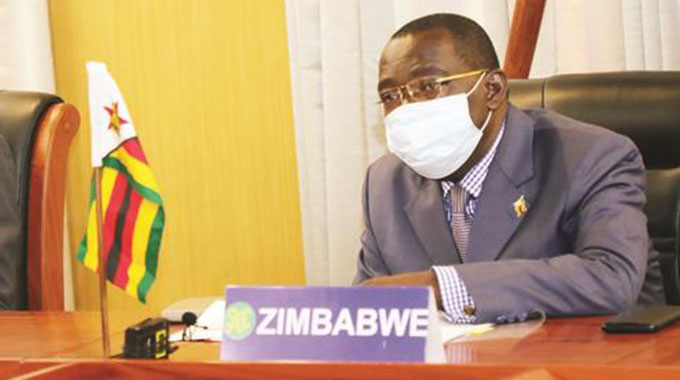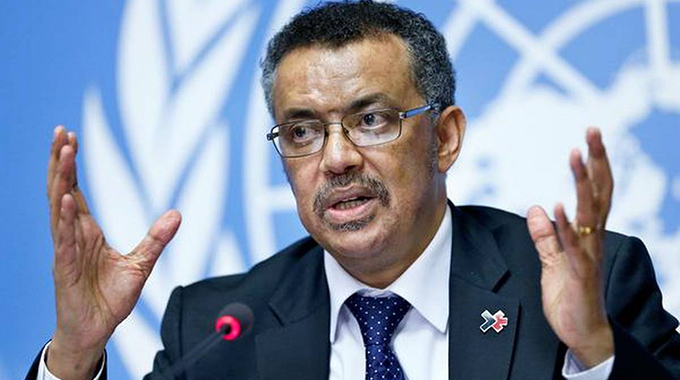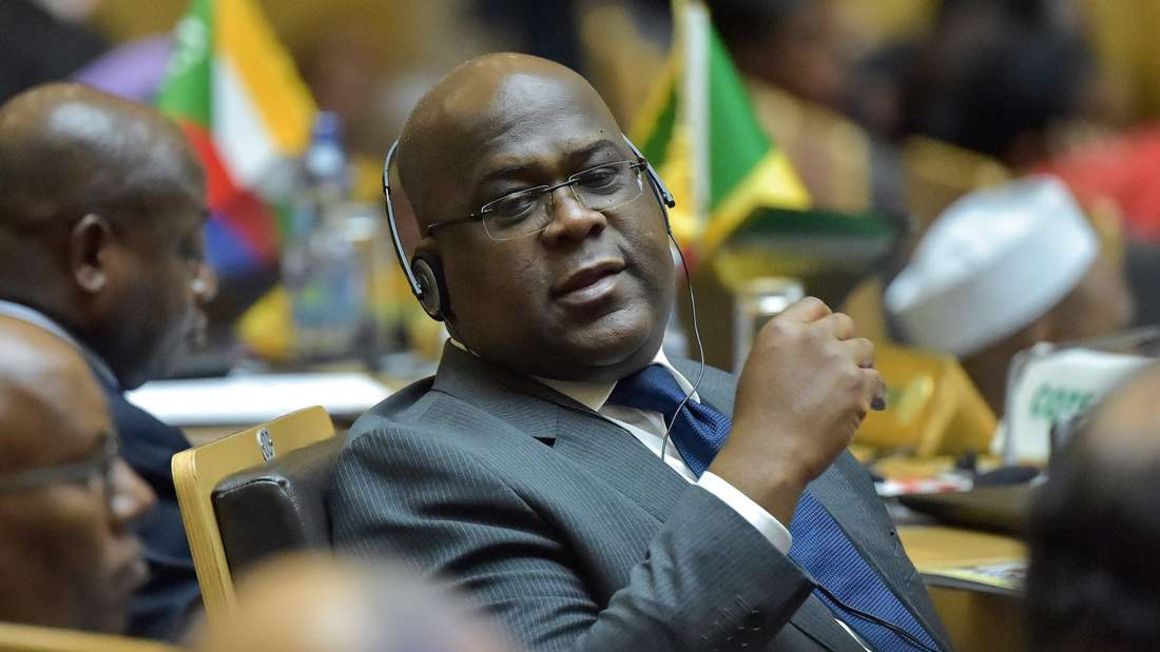The Ministerial Committee of the Sadc Organ on Politics, Defence and Security Cooperation met yesterday in preparation for a meeting to be held with the United Nations Secretary-General Mr Antonio Guterres to find lasting peace in the Democratic Republic of Congo.
The virtual meeting was chaired by Botswana’s Minister of International Affairs and Cooperation Dr Lebogang Kwape, who is the Sadc Troika Ministerial Committee chairperson, while Zimbabwe was represented by Foreign Affairs and International Trade Minister Dr Sibusiso Moyo.
South Africa, Tanzania, Malawi and the DRC were represented in the meeting, with SADC Executive Secretary Dr Stergomena Lawrence Tax also in attendance.
South Africa, Tanzania and Malawi have contributed troops to the Force Intervention Brigade (FIB) in the DRC.
At its 40th Sadc Summit of Heads of State and Government, the Member States reiterated their position as submitted to Mr Guterres, emphasising that FIB should not be tampered with and expressed gratitude to troop-contributing countries for the continued support to peace and security in the eastern DRC.
Dr Moyo said yesterday’s meeting was a follow up to the one held in August.
“You will recall that on the 8th of August, the ministerial committee held a consultative meeting with Secretary-General Mr Guterres on the disposition of the FIB and today as a follow up to the decisions that were made at that consultative process, it was decided that the military, the defence sub-committee and the military staff at the UN headquarters were to meet and have consultative processes,” he said.
“So, the defence sub-committee made recommendations to the committee of senior officials and today as the ministers of the Troika and also accompanied by the troop-contributing countries plus the DRC and of course supported by the Executive Secretary met and discussed the issues and interrogated what had been recommended by the defence sub-committee and we made resolutions which are in preparation for a conclusive meeting between Sadc and the UN secretary-general on a date to be advised.”
Source: The Herald
GENEVA. — A vaccine against Covid-19 may be ready by year-end, the head of the World Health Organisation (WHO) said yesterday, without elaborating.
WHO director-general Tedros Adhanom Ghebreyesus called for solidarity and political commitment by all leaders to ensure equal distribution of vaccines when they become available.
“We will need vaccines and there is hope that by the end of this year we may have a vaccine. There is hope,” Tedros said in closing remarks to the WHO’s executive board meeting that examined the global response to the pandemic.
The EU health regulator has launched a real-time review of a Covid-19 vaccine developed by US drugmaker Pfizer and Germany’s BioNTech, it said yesterday, following a similar announcement for rival AstraZeneca’s jab last week. The announcement by the European Medicines Agency (EMA) could speed up the process of approving a successful vaccine in the bloc.
Nine experimental vaccines are in the pipeline of the WHO-led Covax global vaccine facility that aims to distribute 2 billion doses by the end of 2021.
So far some 168 countries have joined the Covaxfacility, but neither China, the United States nor Russia is among them. The Trump administration has said it is relying instead on bilateral deals to secure supplies from vaccine makers.
“Especially for the vaccines and other products which are in the pipeline, the most important tool is a political commitment from our leaders especially in the equitable distribution of the vaccines,” Tedros said.
“We need each other, we need solidarity and we need to use all the energy we have to fight the virus,” he said. — Reuters.
Source: The Herald
The Democratic Republic of Congo President Felix Tshisekedi on Wednesday hosted the long-awaited meeting for regional heads of state to address peace and security concerns as well as economic cooperation.
The Congolese leader had invited Rwandan President Paul Kagame, Uganda’s Yoweri Museveni, Burundi’s Evariste Ndayishimiye and Angola’s Joao Lourenço for a mini-summit initially slated for September 17 in the eastern DRC city of Goma, North Kivu Province.
The meeting, however, failed to take off due to the constraints of Covid-19, the DRC authorities said. Burundi had also pulled out citing lack of preparedness and that it preferred bilateral talks.
On Tuesday, sources told The EastAfrican that a team of ministers from DRC, Rwanda, Uganda and Angola met in Goma. President Tshisekedi had also sent his Foreign Affairs minister Marie Ntumba Nzeza to Burundi on Sunday ahead of the presidents’ meeting.
The virtual meeting, attended by all the regional presidents save for Ndayishimiye, has been held on the back of drawn-out diplomatic spats especially between Rwanda and Uganda, and Burundi that has led to restricted cross-border movements, hampering trade.
The Congolese government has said the leaders would address the challenges of armed groups roaming the common borders of DRC, Rwanda, and Burundi; the revival of economic activities in the wake of the Covid-19 pandemic, and diplomatic and political relations.
Source: The East African
Authorities in Addis Ababa on Monday banned flights in Benishangul-Gumuz region, where the massive Grand Ethiopian Renaissance Dam (GERD) is being built.
Officials cited security reasons behind the closure of that region's airspace amid unresolved agreement between Ethiopia, Sudan, and Egypt on the use of the waters of the Nile and the dam itself.
"The ban was imposed after consultation with the Air Force and other relevant government and security bodies," Wosenyeleh Hunegnaw, the Director-General of the Ethiopian Civil Aviation Authority told the media.
As a result, he said, commercial or passenger flights or any other types of flights will not be allowed to fly through the area near the vicinity of the dam.
"Such restrictions are common in the international arena to ensure a country's security," Mr Wosenyeleh said.
"Ethiopia has also imposed such restrictions to ensure the safety of the dam," he added.
Air force
However, he said that only those with a special permit may be allowed to fly in the restricted airspace.
In an interview with the state-run Ethiopian News Agency, Ethiopian Air Force Commander Brigadier General Yilma Merdasa said that the army is fully prepared to prevent any enemy attack targeting the Nile dam.
The air force is armed with fighter and patrol jets that can stay on the air for more than four hours to defend any enemy actions, he said.
"The Ethiopian Air Force is providing 24-hour air surveillance to the country's airspace and particularly for the Renaissance Dam."
"Any threat of an airstrike against GERD is not a concern for Ethiopia," the military official said citing the country's current air defence capabilities.
It is not clear whether there is a threat of an airstrike and if that is why the airspace restriction has been imposed.
Agreement
The latest development comes two months after Ethiopia began filling the reservoir while the dispute with Sudan and Egypt over its filling and operation remains unresolved.
Khartoum and Cairo fear that Addis Ababa's $4.8 billion mega-dam will eventually diminish their historic water share from the Nile River.
Addis Ababa, however, argues that the project, which would be Africa's largest hydropower generator, will not have any significant harm on the two downstream countries.
Ethiopia further argues that the hydroelectric power plant, being built some 30 kilometres from the Sudanese border, will ease the severity of deadly flooding in Sudan.
The Africa Union (AU) brokered round of talks among Ethiopia, Sudan and Egypt ended in August without any major breakthrough.
The three parties are yet to negotiate on the most outstanding issues - rules for filling, particularly during drought season and on the annual operation of the GERD.
Source: The East African




